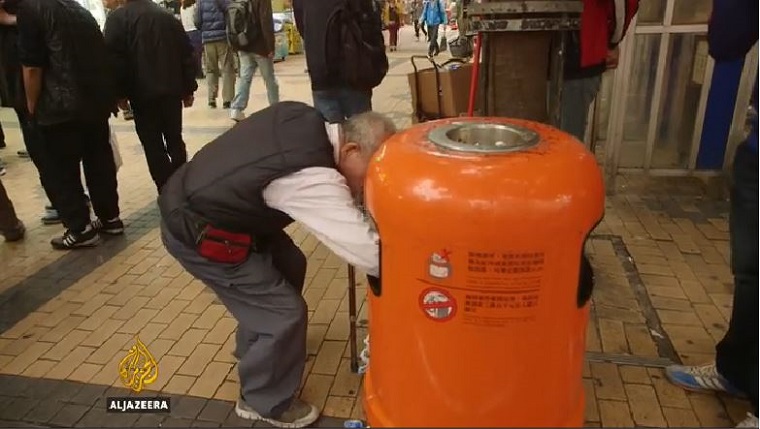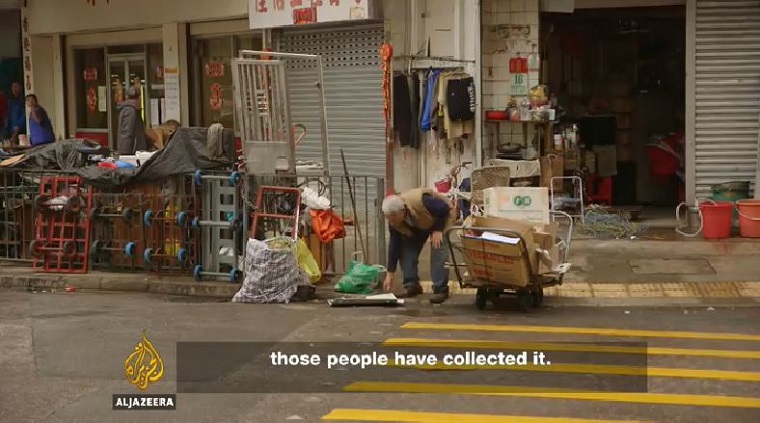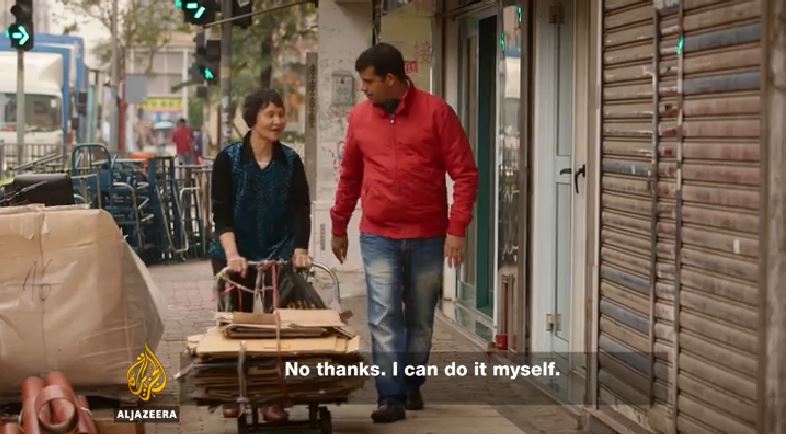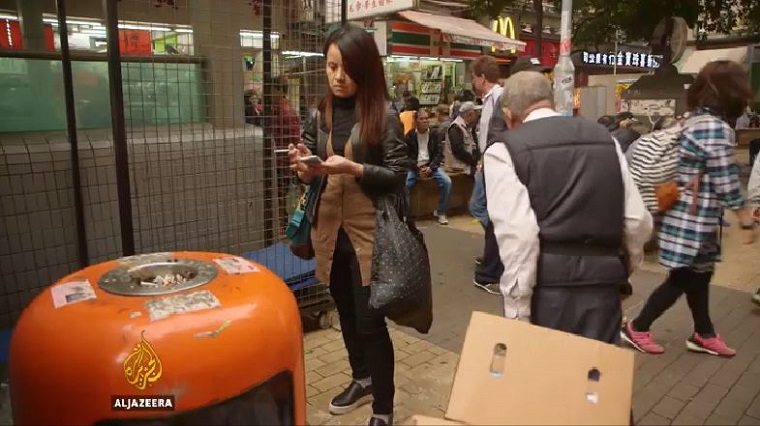Sometimes we tend to overlook the negative aspects of our society, because we have gotten used to what was once considered appalling imagery.
We shrug, convince ourselves there is nothing we can do, or worse, nothing that needs to be done, and carry on with our daily lives.
Perhaps viewing the same problem in a foreign land might help to brush away that crust of apathy that builds up over time.
Enter Al Jazeera's recent video on the thousands of elderly in Hong Kong who are being forced to collect rubbish in order to survive in "Asia's New York".
The 25 minute documentary highlights the epidemic of what is essentially the Hong Kong version of elderly Karung guni men and women, struggling against each other to collect enough rubbish to survive.


A third of the elderly in Hong Kong live in poverty, these elderly are given a monthly allowance of $150 a month, derisively known as fruit money by the locals, by the government.
Chan Chan Ming, a restaurateur who was featured, highlighted the obstacles the elderly had to go through to secure more government aid. They include having their children sign papers that signal they are unable to take care of their parents.
He added that some of the elderly were far too proud to seek help, claiming it was shameful in Chinese culture to accept welfare.

Governmental outreach
Another problem Al Jazeera found was that the government was too out of touch with the poor, which resulted in less than ideal measures being pushed out, that had little to no resonance with the hardships faced by the elderly poor.
Chan explained the problems the government face in helping the elderly poor.
"The government, they don't know what's happening, they are not at the front line to see what's going, to find out the needs of the poor, they don't get the real picture."
Apathy towards the poor
A disconcerting point raised by Nelson Chia, a leading professor in social welfare, was that the society around these elderly might even think they deserve the plight they are in.

"I think they always believed that this group of people, they really deserve this kind of poverty because they did not prepare for their old age."
Nelson was the architect behind a recent proposal that would have tripled the "fruit money" received by the elderly, which would go a long way in helping over 300,000 needy elderly in Hong Kong.
The crux of his plan would entail businesses pay an additional 1 percent in income tax.
The city state government immediately dismissed his proposal, arguing that any tax increase on large companies would result in a mass exodus to competitor countries such as Shanghai, Japan and ironically, Singapore.
Low birth rates and cost of living
Kim Mak, chairman of the HK society of the aged, pointed to the declining birth rate as another multiplier of the problem faced in helping the elderly.
"A lot of families now only have one child, one young person could face the dilemma of having to look after two parents, grandparents, and when he or she marries, even the other half of the family as well."
The financial commitment to take care of the elderly is made even worse when the increasing cost of living is taken into account.
The plight of these elderly might only get worse as the "silver tsunami" hits Hong Kong in the coming years.
All images are screenshots from Al Jazeera
If you like what you read, follow us on Facebook and Twitter to get the latest updates.
If you like what you read, follow us on Facebook, Instagram, Twitter and Telegram to get the latest updates.